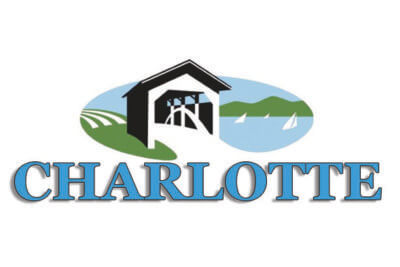Charlotte resilience survey results are in
 The Charlotte Community Partners (CCP) wrote a lot during the fall and early winter about the Resilience Survey, which was rolled out in November and ran into December. It gave Charlotte residents the opportunity to weigh in on how resilient they believed our town to be in five various areas. We were excited that 181 Charlotters participated in the survey, which was more than any other town in Vermont taking this journey had garnered. We now want to begin the process of sharing the results.
The Charlotte Community Partners (CCP) wrote a lot during the fall and early winter about the Resilience Survey, which was rolled out in November and ran into December. It gave Charlotte residents the opportunity to weigh in on how resilient they believed our town to be in five various areas. We were excited that 181 Charlotters participated in the survey, which was more than any other town in Vermont taking this journey had garnered. We now want to begin the process of sharing the results.
Back in April 2020, at the onset of our COVID-19 journey, a trio of concerned Charlotte residents, Cindi Robinson from the Food Shelf, Margaret Woodruff from the library, and Rev. Kevin Goldenbogen from the Congregational Church, put their heads together. They invited other organizations in Charlotte to gather by Zoom to talk about what was working in Charlotte, where the needs were, and how best to meet those needs and support one another in these new, untested pandemic waters.
This group, now known as the Charlotte Community Partners, has met twice a month since last April and includes representatives from Charlotte Central School, the CCS PTO, Charlotte Senior Center, Transition Town Charlotte, Seed Library, Fire and Rescue, the Grange and others. With a mind toward learning if people thought our town was resilient and beginning the discussion of how to become more resilient if necessary, the group partnered with Vermont-based Community Resilience Organizations, which has run these assessments throughout the state. Mindy Blank, CRO director, guided us through the resilience assessment process, customizing the survey for Charlotte and adding a section assessing the COVID situation.
The results of the assessment/survey are descriptive only; they only highlight community perceptions of our town’s ability to bounce back from challenges. The survey results do not prescribe or offer any answers or suggest any particular actions.
The five categories surveyed were Basic Needs and Services, covering food supply and equity, energy, health services, housing, etc.; Environment and Natural Systems, including land use, rivers/floodplains, natural areas, common spaces, and invasive species; Physical Infrastructure, including roads/transportation, emergency shelters, cell/broadband accessibility, public/private facilities, stormwater and waste management; Community Connections, including community planning, communication, civic engagement, community spirit, self-sufficiency, awareness and education; and COVID-19, including questions around mutual aid/community support, schools/families, and personal well-being. Respondents ranked each section on a scale from one to five (one being not very resilient and five being very resilient) or Not Sure.
A few key insights from the various categories include:
Basic Needs & Services: Between 30% and 45% of the respondents have concerns about resilience around food equity, energy, health services and housing; in terms of personal health & well-being, 45% ranked our resiliency as a 4 or 5.
Environment & Natural Systems: Our town’s environmental stewardship and land use received high marks for resilience; invasive species management, however, ranked not very resilient, with 29% marking it a 1 or 2.
Physical Infrastructure: Emergency shelter access received a lower grade as 46% of the respondents ranked it as a 1 or 2 and another 38% saying they weren’t sure. Respondents also ranked cell service and broadband accessibility lower, with 39% of ranking it as a 1 or 2. Public/private facilities were ranked as being a 4 or 5 in resiliency.
Community Connections: Results received indicate that there is a fair amount of uncertainty (Not Sure) in the areas of Self Sufficiency and Awareness and Education. The results in Civic Engagement indicate that most respondents think that we are not very resilient with 38% scoring it a 1 or 2.
COVID-19: 73% of the respondents indicated they were doing well during this journey, but many were unclear about community resilience in the areas of mutual aid or around schools and families.
This is merely a glance at what the results show; the CCP is in the process of finalizing a full report including the raw data that we received. All of that will be sent to various town committees, commissions and organizations. Anyone or any group who would like to read it is invited to do so by requesting a copy or accessing via the website links for the Town and the Charlotte Library. In addition, further articles will appear in The Charlotte News.
The ongoing work of the CCP will be to try to engage various groups to stimulate discussion around the results with the hope of making, through collaborative community engagement, our beautiful town more resilient in all of the areas and welcoming to all.
